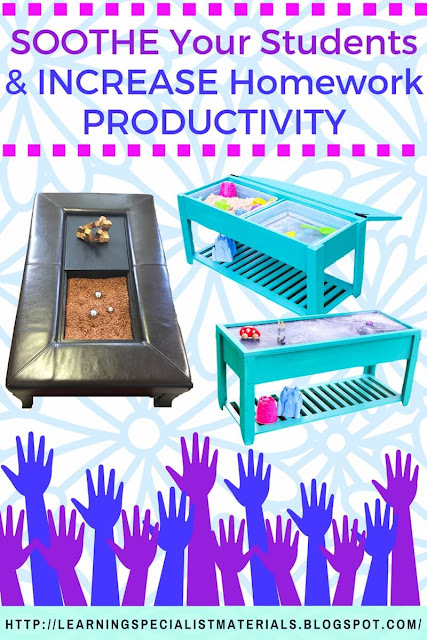This week I wanted to tell you about my online store, Good Sensory Learning. I’m Dr. Erica Warren, and I established this site so I could share all the materials that I have created over the last 20+ years as a learning specialist and educational therapist. When I first began my private practice, Learning to Learn, I had great difficulty finding fun and multisensory materials for my students that were effective and engaging. So back in 2005, I made it my mission to design and distribute high-end, remedial products as well as memorable, motivating lessons that bring delight to learning. If you would like to try a free sampling of my activities , CLICK HERE . How Are the Products Organized at Good Sensory Learning? You can download my Free Printable Catalog or you can browse the site using the grey “search all products” bar in the top right of any page with keywords such as dyslexia, working memory, and executive functioning. What’s more, drop down menus in the red banner allow you t...
When students are spent and stressed from a long day at school, it can be a chore to get them to complete their homework. So how can one entice these passive, unmotivated learners to pick up the pencil and mindfully coast through their assignments?
What Gets in the Way?
There are a number of hurdles that can topple a student session.
- Low stamina: Many students are cognitively spent after a day of school.
- Poor motivation: Some students have little to no interest in completing homework.
- Attention issues: Some students struggle with attentional difficulties, and if they are fatigued after a long day of school their ability to focus is further compromised.
My favorite strategy is allowing learners a few minutes to interact with my Zen Table. The Zen Table is a piece of furniture that holds deep recesses that house a variety of tactile manipulatives such as sand, beans, lentils, rocks, and magnets. I have two distinct sides to my table. On one side I have mung beans and magnets, and on the other I have lentils and rocks. Many of my students gravitate to this place where we can let the stress of the day “dribble out of our fingertips” as we gather our thoughts, connect and create intentions, talk about the day, and plan our approach.
I found my Zen Table on Overstock about ten years ago, but I have also created them in crates, large Tupperware bins, chests and boxes. If you look for coffee tables with storage, you can find a number of options. As another possibility, you can create your own Zen Table with these free plans. This option is particularly cool as it features a chalkboard for the top of the table, which can be used to brainstorm ideas or draw out goals.
Other Strategies that Can Help:
There are a number of other tricks I can employ when antsy or apathetic students come to a session.
- Play Upbeat Music: One of my favorite gadgets at work is the Amazon Echo which I have recently upgraded to the Amazon Show. This voice activated device can play a tune upon command as well as perform many other skills. With many motivating songs, there is a multitude of options. For example, I always begin one of my student sessions with the song Happy by Pharrell Williams. It’s an opportunity for us to elevate our mood and move our bodies.
- Offer a Kinesthetic or Brain Break: Spending a minute or so bouncing on my Zenergy Ball chairs or doing exercises like jumping jacks can pull most students out of a slump.
- Conduct a 3 minute Muse session: For my students that struggle with focusing issues, I have found my Muse is my go-to device. The Muse is an app and headset that can walks students through guided, mindful meditations while providing constant biofeedback on their level of attention.
Cheers, Dr. Erica Warren
Dr. Erica Warren is the author, illustrator, and publisher of multisensory educational materials at Good Sensory Learning and Dyslexia Materials. She is also the director of Learning to Learn and Learning Specialist Courses.
· Blog: https://learningspecialistmaterials.blogspot.com/
· YouTube Channel: https://www.youtube.com/user/warrenerica1
· Podcast: https://godyslexia.com/
· Store: http://www.Goodsensorylearning.com/ & www.dyslexiamaterials.com
· Courses: http://www.learningspecialistcourses.com/
· Newsletter Sign-up: https://app.convertkit.com/landing_pages/69400
Dr. Erica Warren is the author, illustrator, and publisher of multisensory educational materials at Good Sensory Learning and Dyslexia Materials. She is also the director of Learning to Learn and Learning Specialist Courses.
· Blog: https://learningspecialistmaterials.blogspot.com/
· YouTube Channel: https://www.youtube.com/user/warrenerica1
· Podcast: https://godyslexia.com/
· Store: http://www.Goodsensorylearning.com/ & www.dyslexiamaterials.com
· Courses: http://www.learningspecialistcourses.com/
· Newsletter Sign-up: https://app.convertkit.com/landing_pages/69400


Comments
Post a Comment